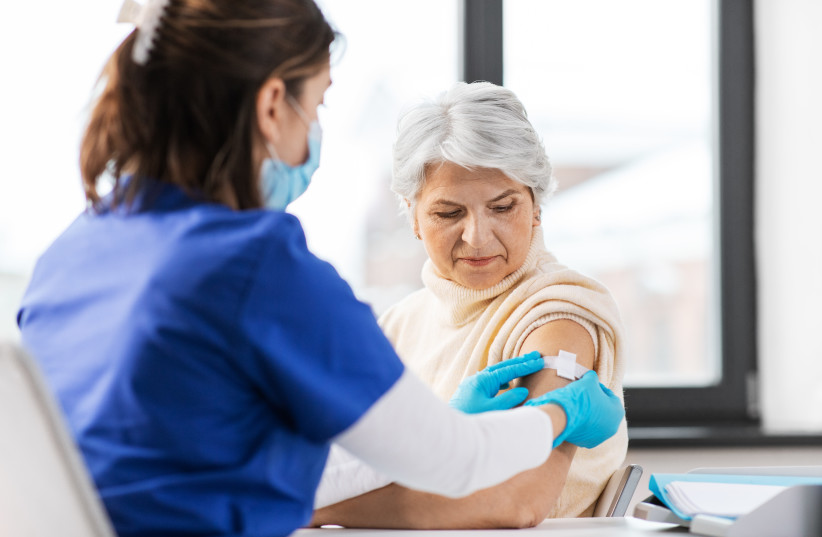The updated COVID vaccination campaign is now underway: Israel's Health Ministry has approved the country's health funds to begin administering Moderna's updated vaccine, which targets new variants of the coronavirus.
This latest vaccine protects against both earlier strains, including the Omicron variant, and the newly spreading JN1 variant, which has made its way around the globe, including Israel.
Vaccinations will be available through health insurance and coincide with the annual flu vaccination campaign.
The JN1 variant emerged after the global spread of earlier Omicron strains. It has notable changes in its spike protein, the part of the virus that enables it to invade human cells. Because of these changes, JN1 has a higher transmission potential and some resistance to earlier vaccines. Moderna’s new vaccine, based on mRNA technology, is specifically designed to combat this variant, giving people optimal protection.
This COVID vaccine campaign is running in tandem with flu vaccinations, and the Health Ministry encourages people to get both vaccines simultaneously if possible. According to ministry guidelines, receiving both shots simultaneously without needing to wait between them is safe. This approach aims to boost the population’s vaccination coverage and help prevent the risk of catching both COVID and the flu, which raises the likelihood of complications, especially for at-risk individuals.
Here are some frequently asked questions and answers about the new vaccines.

Which vaccines are approved in Israel?
Israel has approved mRNA vaccines from Pfizer and Moderna. The newest vaccine, which covers the JN1 variant, is from Moderna. It replaces earlier versions and no longer includes the previous formulations.
How are the vaccines given?
The vaccines are administered by injection into the deltoid muscle of the shoulder. The nurse disinfects the area, waits for it to dry, and then injects the vaccine into the muscle. Vaccinations are carried out in health fund clinics.
Which variants does the vaccine protect against?
The updated vaccine covers all major COVID variants that have developed so far, including previous Omicron strains and the new JN1 variant. Thanks to the flexibility of mRNA technology, Moderna has been able to adjust its vaccine within months to keep up with emerging variants.
At what age can people get the COVID vaccine?
Moderna’s updated JN1 vaccine is approved for people six months of age and older, per ministry guidelines. The dosage varies by age: children aged six months to 11 years receive a 0.25 mL dose, while individuals 12 and older receive a 0.5 mL dose.
Who cannot get vaccinated?
There are a few exceptions. People who have had a severe allergic reaction to vaccines or are allergic to specific vaccine components, such as polyethylene glycol, may receive the vaccine in a hospital under medical supervision. Sometimes, this involves a pre-treatment with steroids or antihistamines. People with high fevers should wait at least 24 hours after their fever breaks before getting any vaccine, including the COVID vaccine.
What side effects can people expect after the vaccination?
As with most vaccines, mild side effects are possible. These might include pain at the injection site, fatigue, low-grade fever, muscle or joint pain, or chills. These effects usually resolve within one or two days.
Can other vaccines be administered with the COVID vaccine?
Yes, other vaccines, such as the flu or whooping cough vaccines, can be given alongside the COVID vaccine. There is no need to space them apart. Each vaccine will simply be administered in a different arm.
Who should be especially encouraged to get vaccinated? The vaccine is highly recommended for people who are at higher risk of severe complications from COVID. This includes individuals over the age of 60, residents of nursing homes, people with chronic conditions like lung disease, diabetes, or heart disease, organ transplant recipients, and those with weakened immune systems. The vaccine is also recommended for healthcare and paramedical workers, individuals in close contact with the public, pregnant and breastfeeding women, and people undergoing treatments that weaken the immune system.
